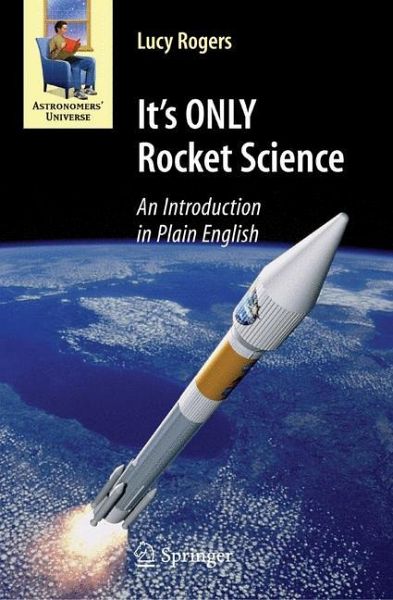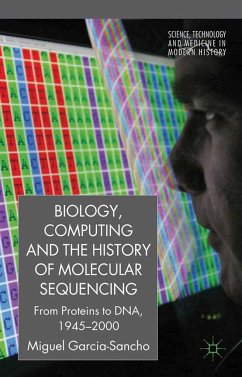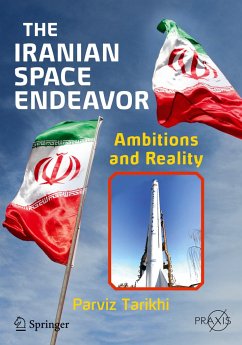
It's ONLY Rocket Science
An Introduction in Plain English

PAYBACK Punkte
16 °P sammeln!
For over fifty years satellites have circled the Earth and spacecraft have been used to explore our solar system. Every day ordinary people around the world use satellites for satellite television, GPS navigation, weather forecasts and other technologies. Many people are curious about how something gets into space - and stays there - and what the terms used in the media actually mean. Also, with the advent of space tourism, some people are starting to wonder if they too could go into space and what it would be like.Here, the author explains the basics of what is involved, from the initial idea...
For over fifty years satellites have circled the Earth and spacecraft have been used to explore our solar system. Every day ordinary people around the world use satellites for satellite television, GPS navigation, weather forecasts and other technologies. Many people are curious about how something gets into space - and stays there - and what the terms used in the media actually mean. Also, with the advent of space tourism, some people are starting to wonder if they too could go into space and what it would be like.
Here, the author explains the basics of what is involved, from the initial idea to the completion of the mission.
The beauty of this text, written by an engineer who is also an accomplished science writer, is that it covers the subject comprehensively, and yet is almost entirely descriptive and non-mathematical.
It deals with all aspects of spaceflight, from how to leave the Earth (including the design of the rocket, mission planning, navigation and communication), to life in space and the effects of weightlessness.
The book also includes sections describing how an amateur can track satellites and understand their trajectories, and on the future of spaceflight, touching on what is, and what is not, possible given present and expected future technologies.
Here, the author explains the basics of what is involved, from the initial idea to the completion of the mission.
The beauty of this text, written by an engineer who is also an accomplished science writer, is that it covers the subject comprehensively, and yet is almost entirely descriptive and non-mathematical.
It deals with all aspects of spaceflight, from how to leave the Earth (including the design of the rocket, mission planning, navigation and communication), to life in space and the effects of weightlessness.
The book also includes sections describing how an amateur can track satellites and understand their trajectories, and on the future of spaceflight, touching on what is, and what is not, possible given present and expected future technologies.














